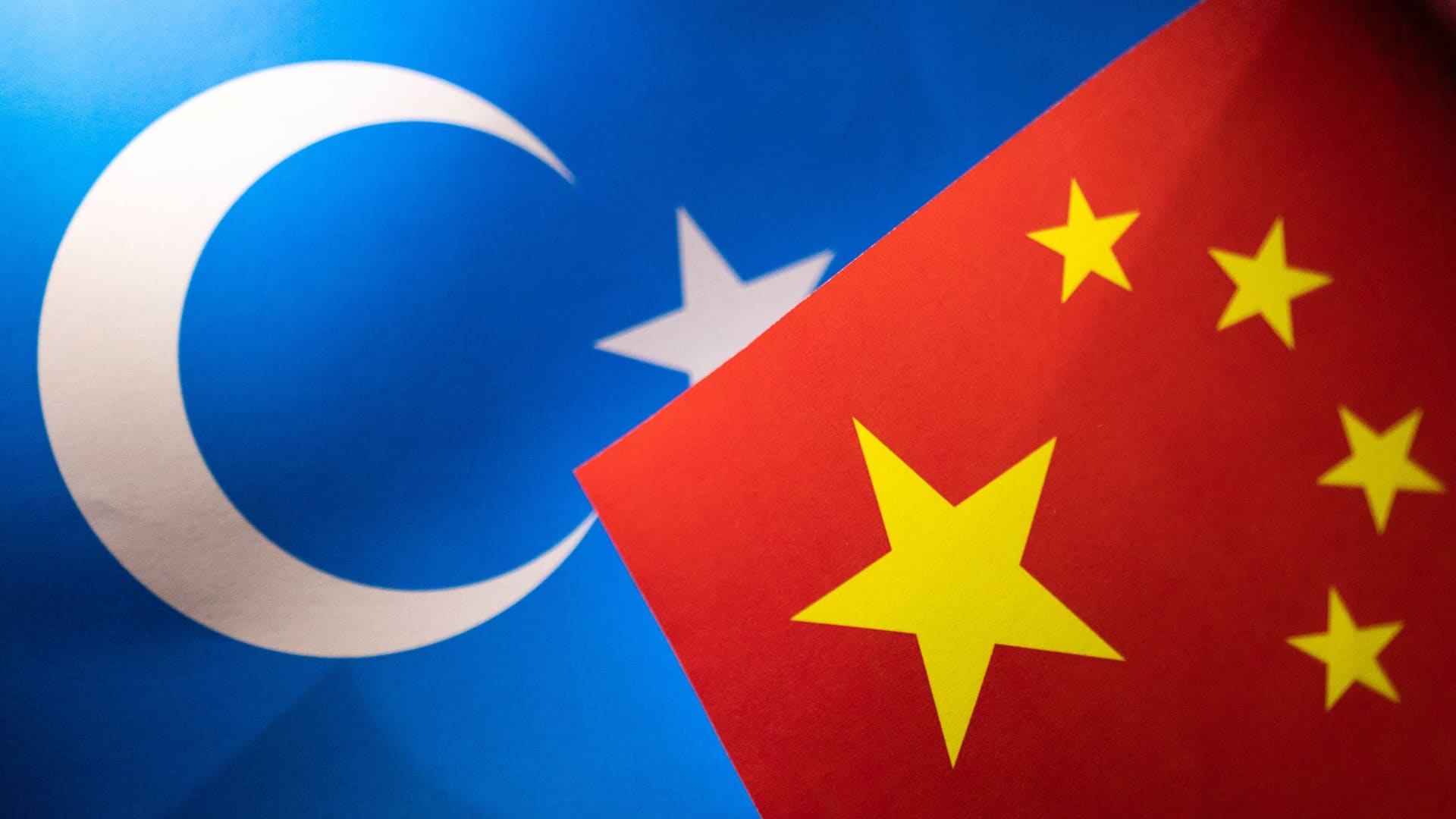
The Chinese and Xinjiang Uyghur Autonomous Region flags.
Dado Ruvic | Reuters
The U.S. has added two new Chinese companies to a Xinjiang trade blacklist over forced labor accusations. The move comes just one week after Beijing retaliated against claims of human rights violations in the region and related “discriminatory measures” from American companies.
The Department of Homeland Security announced on Wednesday that a Chinese steel manufacturer and an artificial sweetener maker would be placed on the Uyghur Forced Labor Prevention Act (UFLPA) Entity List.
The list, which now includes 75 entities, bans imports that are made in full or in part in China’s Xinjiang Uyghur Region, based on the assumption that forced labor of China’s Uyghurs and other ethnic minorities was used in their manufacturing.
“Today’s actions reaffirm our commitment to eliminating forced labor from U.S. supply chains and upholding our values of human rights for all,” said Robert Silvers, under secretary for policy at the Department of Homeland Security, in a statement.
The firms are the first in their respective industries to be added to the list. Many of the prior companies added have been involved in Xinjiang’s large cotton and textile industries.
“No sector is off-limits. We will continue to identify entities across industries and hold accountable those who seek to profit from exploitation and abuse,” Silvers said.
The UFLPA was signed into law in December 2021 after the U.S. claimed it had growing evidence that the Chinese government was detaining and exploiting Uyghurs, a predominantly Muslim population, and other ethnic and religious minority groups in Xinjiang, for years.
China has continually denied such allegations. Amid deteriorating relations between the U.S. and China, the entity list has become yet another factor behind the trade decoupling of the world’s two largest economies.
Last week, Beijing launched a new effort to fight back against the import bans, announcing an investigation of the U.S. company that owns the fashion brands Tommy Hilfiger and Calvin Klein for suspected “discriminatory measures” against Xinjiang cotton companies.
The group, PVH, has a presence in both the U.S. and China, and is among a growing number of foreign companies attempting to distance themselves from alleged forced labor in Xinjiang.
According to state-run media, China’s Ministry of Commerce suspects the firm of “violating normal market trading principles, and boycotting cotton and other products from Xinjiang without a factual basis.”
PVH has 30 days to respond to officials or it could be added to China’s “unreliable entities” list, which could lead to more punishment and restrictions. The company, which has a significant presence in China and the U.S., told CNBC that it was in contact with Chinese authorities.
“As a matter of company policy, PVH maintains strict compliance with all relevant laws and regulations in all countries and regions in which we operate,” the company said, adding it would “respond in accordance with the relevant regulations.”
China has previously put American firms such as defense contractors Lockheed Martin and Raytheon on its entity list over their dealings and business in Taiwan.
The European Union has endorsed new laws that will ban products made using forced labor and require big firms to preform human rights and environmental audits on overseas suppliers. Taiwan is also reportedly considering its own bill on forced labor, similar to the UFLPA.
— CNBC’s Evelyn Cheng contributed to this report.







